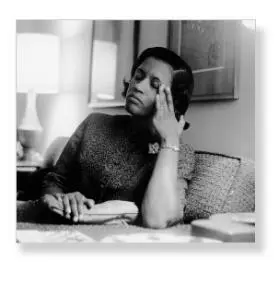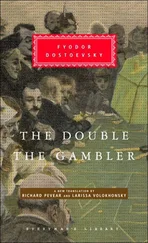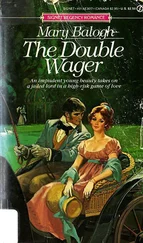
A FTER THE SOCIAL WORKER had left, Pamela Buchanan Marshfield sat alone in her study and flipped dolefully through the only photo album that remained that still held pictures of her brother. Her-and now it was official-late brother. He had been gone, literally or metaphorically, for so long that she was surprised at the depth of her grief.
Her father had thrown away or destroyed all of the other books with photos of Robert, or they had been lost over time. This one album she had was ancient, nearly as old as she was. Many of the photographs were no longer even attached to the dusty pages, and there were two- and three-inch-long yellow stripes where once there had been pieces of Scotch tape. Her mother had never thought much about archival preservation. In truth, her mother had rarely thought much about tomorrow. In most of the images, Robert was a very little boy; in a good many, he looked just about the way he had in the snapshot that Laurel had brought by the house.
Clearly, the girl had the negatives. And it sounded as if she had a lot.
When she had met with the social worker, she had chosen to wear a pair of earrings that once had belonged to her mother. She was quite sure they had been a gift from James Gatz, because the diamonds-and there were many-were set in big, ostentatious daisies, and her mother only seemed to wear them when her father was out of town or with the latest in his unending string of mistresses. Moreover, virtually every other piece of fine jewelry her mother owned seemed to have a story attached to it. “These rubies were Grandmother Delia’s” -her grandmother, a Louisville Fay- “and she was given them by her own parents when she debuted in 1885. Your father gave me these pearls on our ten-year wedding anniversary. This diamond? A gift from him after he fucked that awful Lancaster woman.” Her mother’s language had actually grown considerably more colorful as she had grown older, and she had started to drink on occasion even when she was alone. Daisy had always been a heavy drinker, but usually she had been able to hold her alcohol well. Tom Buchanan, too. They would be drunk, but you wouldn’t necessarily know it until they grew violent.
For a few years, in that period when he had been friends with an advertising executive named Bruce Barton, her father had stopped drinking altogether. Barton was the second B in BBDO, and the author of a slim little book that became a massive bestseller, The Man Nobody Knows. In it, Barton portrayed Jesus Christ as the world’s first great businessman: the sort of decisive individual who would have been welcomed into the boardrooms of the decade’s biggest corporations and who would have felt right at home at the parties that peppered the era-perhaps even those Dionysian debauches that James Gatz threw for strangers across the cove. In Barton’s view (and so, for a time, in her father’s), Jesus was a man’s man, a reveler who would turn water into wine, and a most impressive storyteller-the creator of parables that were models for ad sloganeers everywhere.
In hindsight, Pamela really was not all that surprised that her father had glommed on to The Man Nobody Knows and then to its author, and for a few years had tried to live a more exemplary life. Her father was often looking for what he referred to without a trace of irony as “scientific stuff,” and Barton was a serious improvement over some of the other titles to which he had attached himself: Goddard’s The Rise of the Colored Empires. Melckie’s Commandeering the Oriental. And a particularly angry, brutish little screed called The Pure American by someone named C. P. Evans. She could still recall their dust jackets, and the angry fights her parents would have when her mother would say something catty about one of the books and her father would grow defensive.
She honestly hadn’t expected the girl to comment on her earrings. But she had still hoped she might. It was why she had worn them in the first place. Big, garish daisies. She had wanted to see how much the social worker knew, and she thought the jewelry might provide an opening. She found it interesting that Laurel hadn’t planned on showing her the pictures she had brought with her of Gatz and his parties, and Pamela wondered now if this detail alone didn’t tell her all that she needed to know. The child was still worried about her feelings. Hadn’t wanted to dredge up her mother’s infidelity.
Still, it was very clear to Pamela that she had to get the pictures back. All of them. The negatives, too. She had spent a not insubstantial part of her life salvaging her parents’ reputation, and she shuddered when she imagined what sort of truth might be conjured from among those old photos. Perhaps her father did not deserve rehabilitation, but her mother did. Her mother always had done the best she could.
Robert hadn’t believed that, of course, which was among the reasons why he had run off. What did he see when he saw Daisy or Tom or her? Clearly, he saw something more. Something different. There was the periodic laughter when there hadn’t been a joke. Or before there was a punch line. There were the occasional off-color asides he would offer at inopportune times. At a dinner party. The debut of one of her friends at the Plaza. When the cousins were in town from Louisville. She recalled the occasions when she or one of her parents had found him alone in a room in the house as an adolescent-the kitchen or the living room or his bedroom, the door open-muttering to himself, once rocking in a ball on the dining room floor, half in and half out of the cold fireplace, the fingers on both hands clenched tightly around his windpipe. Another vision she would never forget, and among the worst: The amount of blood-his blood-he had left on his bedspread after he had smashed the kings and queens of his cherished glass chess set and then collapsed atop his mattress. She had just come home from shopping for college with one of her girlfriends when she heard him sobbing, went upstairs to investigate, and wound up pulling the daggerlike shards of black and blue glass from the palms of his hands, while the two of them waited for the ambulance. He would never tell her precisely what had occurred, or why, but it appeared that he had been trying to decapitate the pieces.
And yet there were still long periods of perfect lucidity and charm. He was strikingly good-looking, and he always had girls interested in him. He danced as well as any of the boys in East Egg, and he was invited to parties often. He was always very funny. When he was fifteen and sixteen-while she was at Smith-she understood he had actual girlfriends. There was one who, with Daisy or the girl’s mother as a chaperone, he would take into Manhattan for movies or stage plays or concerts. He had no interest in learning to play an instrument, but he liked Duke Ellington and Artie Shaw and Horace Heidt and his Musical Knights. Her mother had told her one time that a monitor at a dance had reported that Robert had kissed a neighbor girl named Donelle while the two of them were dancing to a ballad by Billie Holliday. It was clear that Daisy was pleased.
And the occasional violence-such as that chess set? Well, wasn’t Tom violent, too? And certainly Daisy herself could be mercurial. She had thrown her share of plates and wineglasses-usually, but not always, at her husband.
Unfortunately, Pamela had only the vaguest outline of what her brother had been up to in all the years he had been gone. She lacked the specifics. For most of their lives, she hadn’t even known where he was-what he was doing or where he was living. It was a testimony to the measure of his distaste for her parents and her. He did not merely avoid them, he had not merely shunned them: Over the years, he had resisted completely her sporadic efforts to get him help.
Читать дальше













